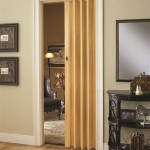Insulating Interior Walls For Sound: A Comprehensive Guide
Soundproofing interior walls is crucial for creating comfortable and private living spaces, especially in multi-family units, home offices, nurseries, and entertainment rooms. Effective sound insulation minimizes the transmission of unwanted noise between rooms, improving overall quality of life. Understanding the principles of sound transmission and the available insulation options is fundamental to achieving optimal sound reduction.
Noise travels through walls in several ways. Airborne sound, like conversations or music, vibrates the wall and the vibrations are transmitted through the structural elements. Impact sound, such as footsteps or objects hitting the wall, directly causes the wall to vibrate. Flanking sound travels through indirect pathways, such as ceilings, floors, and shared ductwork, bypassing the primary wall assembly. A comprehensive soundproofing strategy addresses all these pathways.
The effectiveness of sound insulation is quantified by Sound Transmission Class (STC) ratings. STC measures the ability of a wall to block airborne sound. A higher STC rating indicates better sound blocking performance. For typical residential applications, an STC rating of 45 or higher is generally recommended for interior walls separating living spaces. Walls separating bedrooms or bathrooms may require even higher STC ratings, ideally above 50, to provide greater privacy.
Understanding Sound Transmission Basics
Sound, at its core, is vibration. These vibrations create pressure waves that travel through the air and are perceived as sound when they reach our ears. When these sound waves encounter a wall, they cause the wall itself to vibrate. This vibration then transmits through the wall material and radiates as sound on the other side. The amount of sound transmitted depends on several factors, including the mass, stiffness, and damping properties of the wall.
Mass provides resistance to vibration. Heavier, denser materials, like concrete or multiple layers of drywall, are more difficult to vibrate and therefore transmit less sound. Stiffness refers to the rigidity of the material. Stiffer materials tend to vibrate more readily and can amplify certain frequencies. Damping refers to the material's ability to absorb and dissipate vibrational energy, reducing the amount of sound transmitted.
Frequency also plays a significant role in sound transmission. Lower frequencies are generally more difficult to block than higher frequencies. This is because longer wavelengths associated with lower frequencies require greater mass and damping to effectively attenuate. Designing a soundproof wall typically involves addressing a broad range of frequencies, requiring a combination of different insulation materials and techniques.
Beyond the wall itself, flanking paths are critical considerations. Sound can travel through gaps around doors and windows, through shared electrical outlets, and even through the framing studs themselves. Effective soundproofing requires sealing these flanking paths to prevent sound from circumventing the insulated wall assembly.
Common Insulation Materials for Soundproofing
Several insulation materials can significantly improve the soundproofing performance of interior walls. Each material has distinct properties and advantages, making it suitable for different applications and budgets.
Fiberglass insulation is a widely used and relatively inexpensive option. While primarily designed for thermal insulation, fiberglass can provide some sound absorption, particularly in the mid-range frequencies. Using higher density fiberglass batts can improve its soundproofing capabilities. However, fiberglass is not as effective as other materials specifically designed for sound isolation.
Mineral wool insulation, made from rock or slag, offers superior sound absorption compared to fiberglass. It is denser and has a more complex fiber structure, which effectively traps and dissipates sound waves. Mineral wool is also fire-resistant, making it a safer option. Due to its enhanced performance, mineral wool is often preferred for soundproofing applications.
Cellulose insulation, made from recycled paper, is another environmentally friendly option with good sound absorption properties. It can be blown into wall cavities, filling gaps and providing a dense, consistent layer of insulation. Cellulose also provides good thermal insulation and is treated with fire retardants.
Spray foam insulation, both open-cell and closed-cell, can provide excellent air sealing and some soundproofing benefits. Closed-cell foam is denser and offers better sound reduction, but it is also more expensive. Open-cell foam is less dense and primarily reduces sound transmission by absorbing sound waves within its cellular structure.
Specialty products like soundproof mats and resilient channels are designed specifically for sound isolation. Soundproof mats are typically installed between layers of drywall to dampen vibrations. Resilient channels are metal strips that decouple the drywall from the framing studs, reducing the transmission of vibration through the structure. These specialty products can significantly enhance the soundproofing performance of a wall assembly.
A combination of insulation materials is often the most effective approach to soundproofing. For example, using mineral wool within the wall cavity in conjunction with resilient channels and soundproof mats can achieve a high STC rating.
Installation Techniques for Optimizing Sound Reduction
The installation of insulation is as crucial as the choice of materials. Improper installation can significantly reduce the effectiveness of even the best soundproofing materials. Attention to detail is essential to ensure optimal sound reduction.
Gaps and air leaks are major pathways for sound transmission. Before installing insulation, all gaps and cracks should be sealed with acoustic caulk or sealant. This includes gaps around electrical boxes, plumbing penetrations, and the perimeter of the wall. Sealing these gaps minimizes flanking paths and improves the overall soundproofing performance.
When installing batt insulation, ensure it fits snugly within the wall cavity without being compressed. Compression reduces the insulation's effectiveness. Cut the batts to the correct size and carefully place them between the studs, filling the entire cavity. Avoid leaving any gaps or voids.
For blown-in insulation, ensure it is installed to the proper density. Overfilling or underfilling the cavity can reduce its soundproofing performance. Follow the manufacturer's instructions carefully to achieve the specified density. Using a professional installer for blown-in insulation is often recommended to ensure proper installation.
Resilient channels should be installed perpendicular to the wall studs and spaced according to the manufacturer's specifications. Be careful not to short-circuit the channels by screwing the drywall directly into the studs. Use screws that are long enough to penetrate the drywall but not the studs. This ensures that the drywall is decoupled from the framing, reducing vibration transmission.
When installing soundproof mats, follow the manufacturer's instructions carefully. Typically, the mats are glued or screwed to the drywall before it is installed on the wall. Overlapping the mats at the seams can further improve sound isolation. Ensure that the mats are properly adhered to the drywall to prevent them from delaminating over time.
Consider adding a second layer of drywall to increase the mass of the wall. Use a damping compound, such as Green Glue, between the layers of drywall to further dampen vibrations. Stagger the seams of the drywall layers to minimize sound leaks. This additional mass and damping can significantly improve the STC rating of the wall.
Pay attention to doors and windows, which are often weak points in soundproofing. Use solid-core doors instead of hollow-core doors to provide better sound blocking. Seal the perimeter of the door frame with weatherstripping to prevent air leaks. Consider using soundproof curtains or drapes to further reduce sound transmission through windows. Double-paned or triple-paned windows with laminated glass offer superior sound isolation compared to single-pane windows.
Finally, consider the impact of floor and ceiling assemblies on overall soundproofing. Sound can easily travel through floors and ceilings, bypassing the insulated walls. Adding insulation to the floor and ceiling cavities can further reduce sound transmission between rooms. Using resilient channels or soundproof mats on the floor and ceiling can also improve sound isolation.
By carefully selecting the appropriate insulation materials and employing proper installation techniques, it is possible to significantly reduce the transmission of sound through interior walls, creating quieter and more private living spaces. Consulting with a professional acoustical consultant can provide tailored solutions for specific soundproofing needs.

What Is The Best Sound Proof Acoustic Insulation

How To Soundproof Interior Walls Made Of Drywall Ecohome

Soundproofing How To Soundproof A Room Diy Project The Family Handyman
Interior Wall Insulation Rockwool

Is Soundproof Insulation Worth The Cost

Best Soundproofing Insulation For Walls And Ceilings In 2024
Internal Wall Insulation Rockwool Asia

How To Soundproof A Stud Wall Simple Guide

Best Soundproofing Insulation For Walls And Ceilings In 2024

How To Soundproof A Wall Materials For Soundproofing Walls








